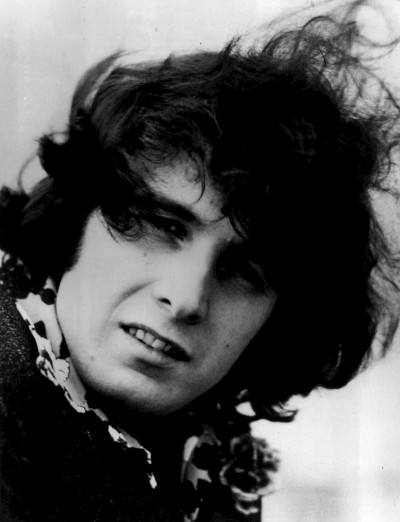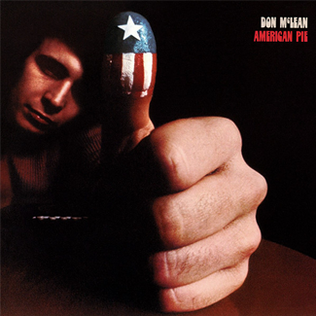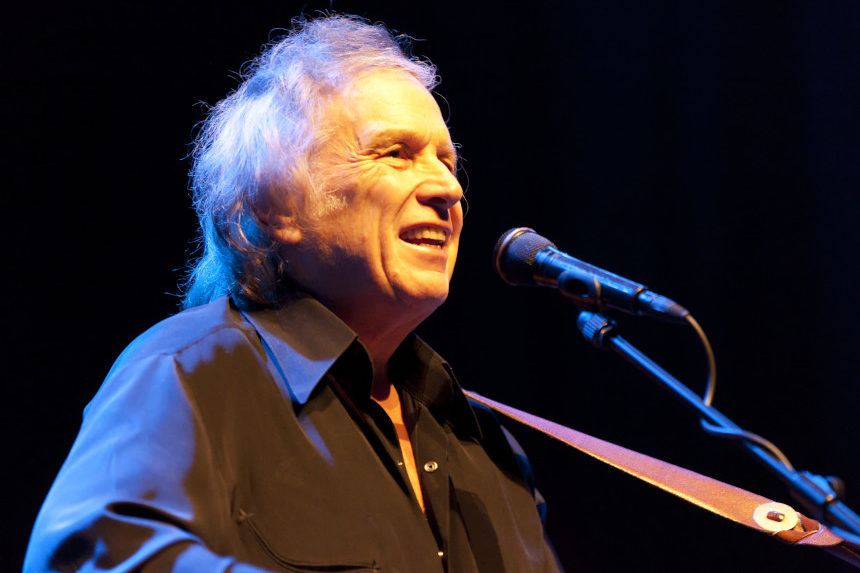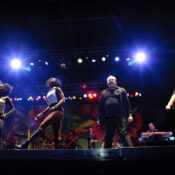Recorded in May of 1971, given its first spin on the radio a month later, and released alongside the album of the same name on October 24, 1971, “American Pie” remains one of the most recognizable songs ever recorded. Beginning with the 1959 deaths of Buddy Holly, Ritchie Valens, and “The Big Bopper” J.P. Richardson, Jr., and winding through the social and cultural upheaval of the turbulent 1960s, the song has moved from being a rumination to becoming an authentic document, a historical record of change expressed through music. Don McLean’s American Pie album was an immediate hit and has become a listening classic on the strength of pieces like its title tune and fellow hit song “Vincent.” Here’s how it got started (when else?) a long, long time ago.

Born in New York state in 1945, Don McLean discovered folk by the time that he was 10. His father died when he was 15. Though he would honor his father’s wishes to stay in school at that time, McLean purchased his first guitar and began building relationships and contacts in the folk scene. After he graduated high school in 1963, McLean would alternate between performing and attending night school until finishing a business administration degree in 1968. By then, he had already played at big events like the Newport Folk Festival and in major venues like L.A.’s The Troubadour. Columbia University offered him a grad school scholarship, but McLean had already decided that music would be his vocation. A good portion of his informal music career education was provided by his mentor, folk legend Pete Seeger.

McLean recorded his first album, Tapestry (no relation to the Carole King record), in 1969. The song “Castles in the Air” managed to crack the Easy Listening chart, but overall, outside of some positive reviews, the album failed to move the needle on his career. However, the small record label that he was contracted to was bought out by United Artists Records, giving the young artist the power of a significant major label behind him for his next release. McLean recorded his follow up throughout May and June of 1971, envisioning it as a whole work, a sort of concept album similar to what The Beatles and The Beach Boys had done. A number of themes run through the album, including a societal loss of innocence to the turmoil of the 1960s and feelings of longing and regret. All of that came together in the album’s title track and longest song, the eight-minute and twenty-two-second “American Pie.”
“American Pie” by Don McLean (Uploaded to YouTube by Don McLean)
Fans, critics, and scholars have debated the layers of meaning in the song for five decades now. A few things are concrete facts, owing to either being obvious on the face of it or by admission by McLean. He was, in fact, a paperboy as a child and had a strong memory of delivering papers in the cold the day that he learned about the plane crash that killed Holly, Valens, and Richardson. That event forms the central refrain and leant a more-or-less official title to that date: The Day the Music Died. The rest of the song reads like a musical tour of the 1960s, with some references being fairly direct (“the birds” equaling “The Byrds;” “The King” being Elvis), others taking a tiny bit of work (“The Jester” with the cast on his arm apparently referring to Bob Dylan and the motorcycle crash that injured him in 1966; “a girl who sang the blues” is almost certainly Janis Joplin), and some being more oblique (“the quartet” practicing in the park is likely The Beatles). McLean has also made it more clear over time that the latter portion of the song does reference the two defining festival shows of 1969: the more Apollonian Woodstock and the Dionysian Altamont, which had been organized by The Rolling Stones. The Altamont piece has always been fairly obvious, given its references to “Jack Flash,” the line about “no angel born in hell” pointing to the Hell’s Angels working security, and the “sacrificial rite” being the stabbing death of Meredith Hunter in the crowd. A number of writers have called Altamont “The End of the ’60s,” so it’s a natural place for the song to begin to shift to the slower tempo that it follows to the end.
“Vincent” by Don McLean (Uploaded to YouTube by Don McLean)
However they might have interpreted it as individuals, it’s clear that fans and record buyers embraced the single and album upon release. The album landed on October 24, 1971, and hit #1 in two weeks, sold half a million copies in six months, and remained on the album chart for about a year. “American Pie” got an official single release in November; it went #1 in six countries, including the U.S. in January of 1972 (remaining there for four weeks). The single by itself has moved over 3,000,000 certified copies. Not to be overlooked, follow-up single “Vincent” was also a big hit, reaching #12 on the Hot 100 and #2 on Easy Listening. Both songs were in the Top 100 for 1972 overall. McLean received four Grammy nominations in 1973 for Best Pop Vocal Performance ̶ Male, Record of the Year, Song of the Year, and Album of the Year.
Don McLean performing “American Pie” in 1999 (Uploaded to YouTube by Don McLean)
In the five decades since, McLean has never stopped writing, recording, and touring. He remains a significant draw and has planned a 35-date European tour for 2022. He’s been a significant influence for performers as varied as Garth Brooks and Drake. He has stars on both the Hollywood and Las Vegas Walks of Fame. He’s in the Songwriters Hall of Fame and “American Pie” is in the Grammy Hall of Fame. “American Pie” has been subject to seemingly endless covers and one instant-classic parody by “Weird” Al” Yankovic, who recast it as a retelling of Star Wars dubbed “The Saga Begins.”
Today, 50 years on, tone might ask why “American Pie” has remained so popular. On one level, it’s a brilliantly catchy song, expertly written and performed with energy and heart. But beyond that, it says something about us as Americans. It captures a politically and culturally charged time with some degree of complexity. It doesn’t hit every single note of the period, but taken together with, for example, the work of Marvin Gaye and other artists, it lends an understanding to some of the changes that the country went through. It’s about nostalgia, and perhaps embracing the fact that while others have gone, the rest of us are still here. As McLean himself wrote in the song, “And I knew if I had my chance/That I could make those people dance/And maybe they’d be happy for a while.” For 50 years and counting, he has.
Featured image: Aija Lehtonen / Shutterstock
Become a Saturday Evening Post member and enjoy unlimited access. Subscribe now




Comments
An article with great insights into this most unique, unusual vintage masterpiece. There are enough established or “sure” references here as stated. I’ve known for a long time ‘the jester’ was Bob Dylan and the ‘King and Queen’ (in my mind) may—but only may, have been JFK and Jackie. Can’t really imagine him performing for them. The ‘King’ singularly is Elvis and other references to Buddy Holly, the Beatles, Janis Joplin & others more clear.
Some are there by omission like Fabian, Paul Anka who filled the gap left by Elvis when he was in the Army. The song until the slower final section, kept coming back to Buddy Holly’s plane crash. I think some of the lyrics are there because they just worked and sounded good for what he had in mind. I’m no stranger to doing that myself, actually.
The song captures the essence of the 1959-’70 period very well. Probably the most drastically different from each other 11 year period ever. Mid-century to early late. Too much change in too short of an amount of time. It was probably one of the factors that helped set the longing for the Fifties that ran throughout the malaised 70’s.
I’m glad Don is still active and doing concerts. I’m sorry ‘American Pie’ overshadows his other works, but it’s understandable. Of all of his others, ‘Dreidel’ (1972 HQ) is my personal favorite. Don’t over think the lyrics. Just let him take you on a musically different wild ride that blends the guitar and brass beautifully, among other things.